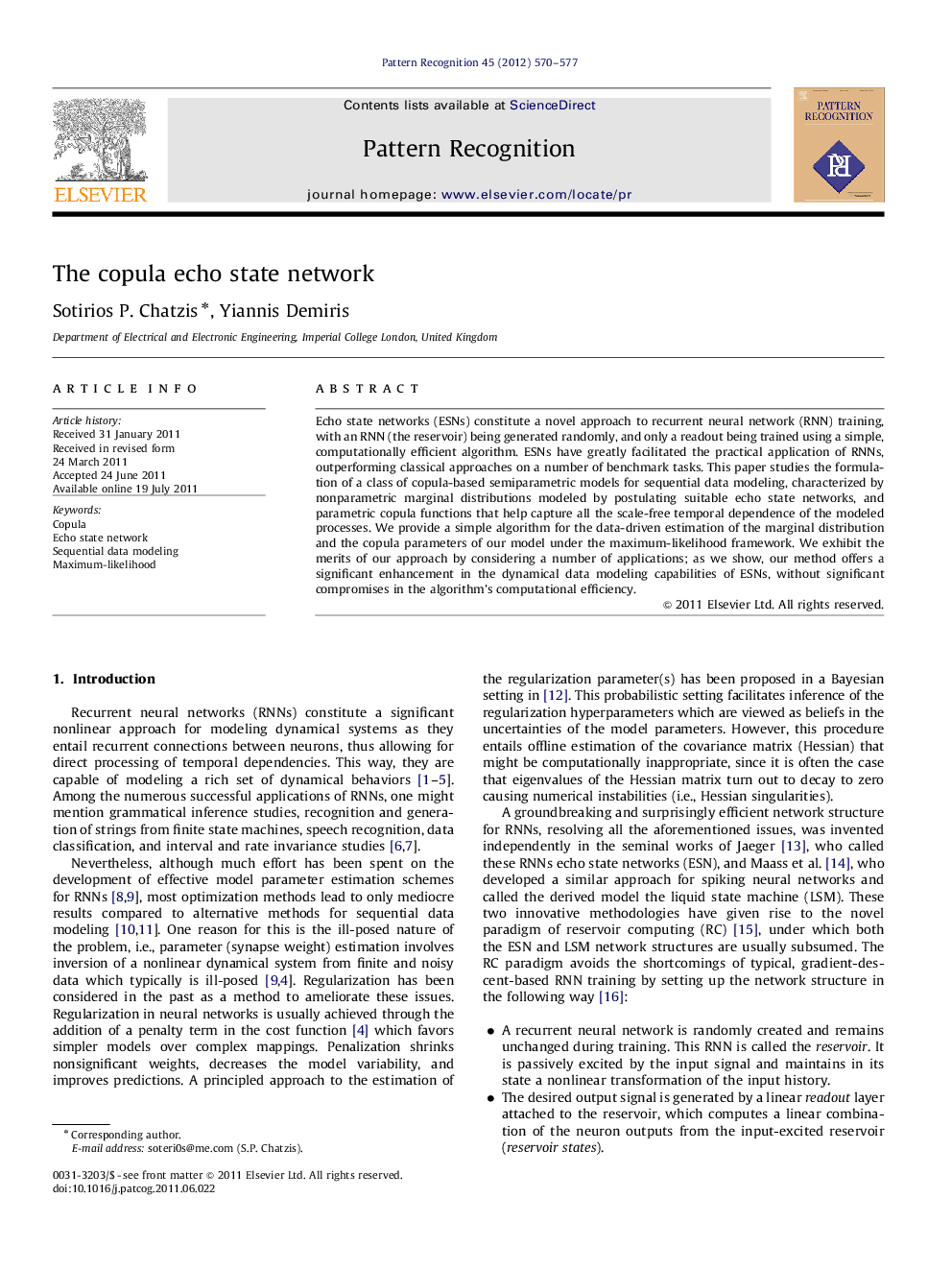| Article ID | Journal | Published Year | Pages | File Type |
|---|---|---|---|---|
| 533472 | Pattern Recognition | 2012 | 8 Pages |
Echo state networks (ESNs) constitute a novel approach to recurrent neural network (RNN) training, with an RNN (the reservoir) being generated randomly, and only a readout being trained using a simple, computationally efficient algorithm. ESNs have greatly facilitated the practical application of RNNs, outperforming classical approaches on a number of benchmark tasks. This paper studies the formulation of a class of copula-based semiparametric models for sequential data modeling, characterized by nonparametric marginal distributions modeled by postulating suitable echo state networks, and parametric copula functions that help capture all the scale-free temporal dependence of the modeled processes. We provide a simple algorithm for the data-driven estimation of the marginal distribution and the copula parameters of our model under the maximum-likelihood framework. We exhibit the merits of our approach by considering a number of applications; as we show, our method offers a significant enhancement in the dynamical data modeling capabilities of ESNs, without significant compromises in the algorithm's computational efficiency.
► Echo state networks do not offer an explicit temporal dependence probabilistic model. ► We seek to provide such an explicit dependence expression for successive observations. ► We postulate a first-order Markov chain-type conditional density model. ► Formulation of the model is based on the statistical tool of the copula. ► Copulas are used to extract the hidden dynamic information in an explicit way.
